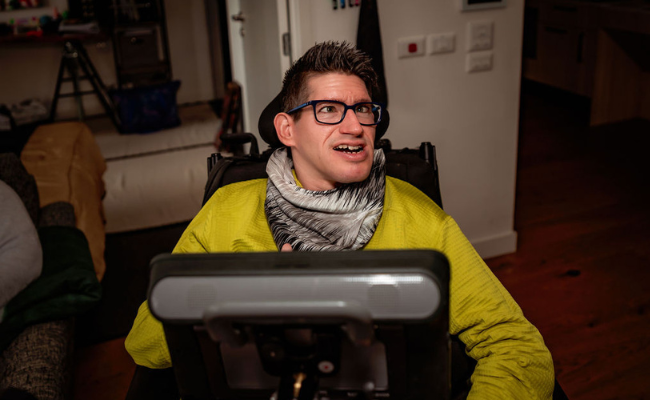Get Your Car Modified, Get Your Freedom
Jamie-Lee details how having her car modified through the NDIS gave her more freedom and independence in her life with the ability to choose when and where she goes.
I moved into my first Specialist Disability Accommodation (SDA) apartment in 2020, right after the Covid-19 lockdown, so I was unsure about what to expect from this major change. Over time my independence and freedom grew, and in December 2024, my freedom grew even more when my sister and I got our own accessible car.
Before living in SDA, I forgot what it was like to be in charge of my own life, like deciding what to cook, who I would go out with and where I felt like going. I realised after getting this new modified car that we gained even more freedom; reinforcing how nice it is to no longer be on someone else’s schedule. I don’t have to rush off for pre-booked taxi arrangements, I can stay and enjoy myself or leave when I would like to.
My family lives on the Gold Coast in Queensland and normally I would pay over $400 in taxi fares to visit them. Now I can drive long distances without being out of pocket.
My sister was the one who convinced me to rent a wheelchair-accessible car for three months. This experience made me see the benefits that came with having a vehicle, and so we began the long process of getting our own.
The National Disability Insurance Scheme (NDIS) won’t fund the actual car for participants, but it will provide funding for a car to receive modifications.
In order to alter our NDIS funding to have our car modified, we first needed to come up with the money to buy the car itself. It took us a few months to scrape together enough money to make the purchase, and we couldn’t have done it without my parents, Youngcare's At Home Care Grants (AHCG) and a GoFundMe page.
The AHCG is a national program that provides funding for equipment, home modifications and essential support that is unable to be funded through other means (eg. NDIS). The grant aims to improve the quality of life for young people with high physical care needs and assist them to remain living in their own home.
We were both lucky that we had support coordinators to help us fill out the grant application in time.
My sister’s occupational therapist (OT) recommended a driving OT to assess what vehicle will accommodate us both and our particular needs. NDIS funding can be used for this driving OT’s assessment. Our driving OT arranged for me to get a docking station installed at home so I can go into the car in my power chair, which locks in automatically and doesn’t need any restraints. My team was provided with detailed instructions from the driving OT on how to load and unload the equipment.
It was a long process to get to where we are now, and it took a lot of effort from a lot of people, but in my experience, it was worth it for this newfound independence.
The NDIS has information about vehicle modifications and driving supports which you can access here.
Article published: January 2025
About the author
Jamie-Lee loves to challenge stereotypes surrounding disability; her lived experience of someone growing up disabled motivates her advocacy. Having studied journalism at uni, she uses her writing skills to her advantage. Shining a light on independent living options available to people with a disability is how we can create change in our society. She hopes to help other people with a disability along their journey, encouraging vulnerable people to find their voice. She believes that diversity will pave the way to equality for all.
The Housing Hub currently lists over 4,500 homes for people with disability to rent or buy, including individual apartments and group homes. Search for a home that is right for you today!
Or better still, create a Housing Seeker Profile and let the Housing Hub do the hard work for you. Sign up here!
Browse Resources

Housing Seeker Profile
Creating a Housing Seeker Profile is a simple process which involves telling us what you are looking for and what is important to you.

Housing Roadmap
The Housing Hub has worked alongside people with disability to map out the stages of a housing journey and the information you need to know about when moving through each step.

Living More Independently
The Housing Hub has teamed up with Mable to create a three-part series about living more independently.

